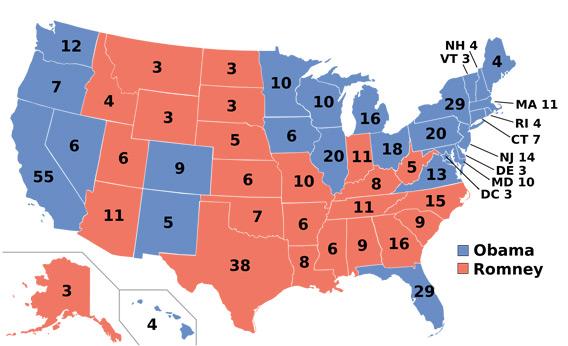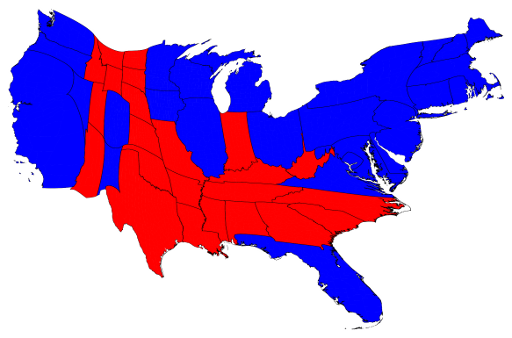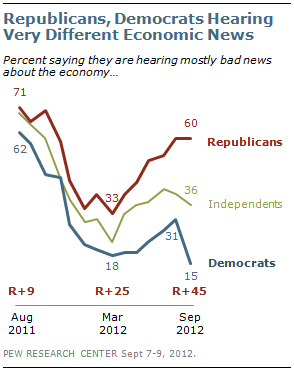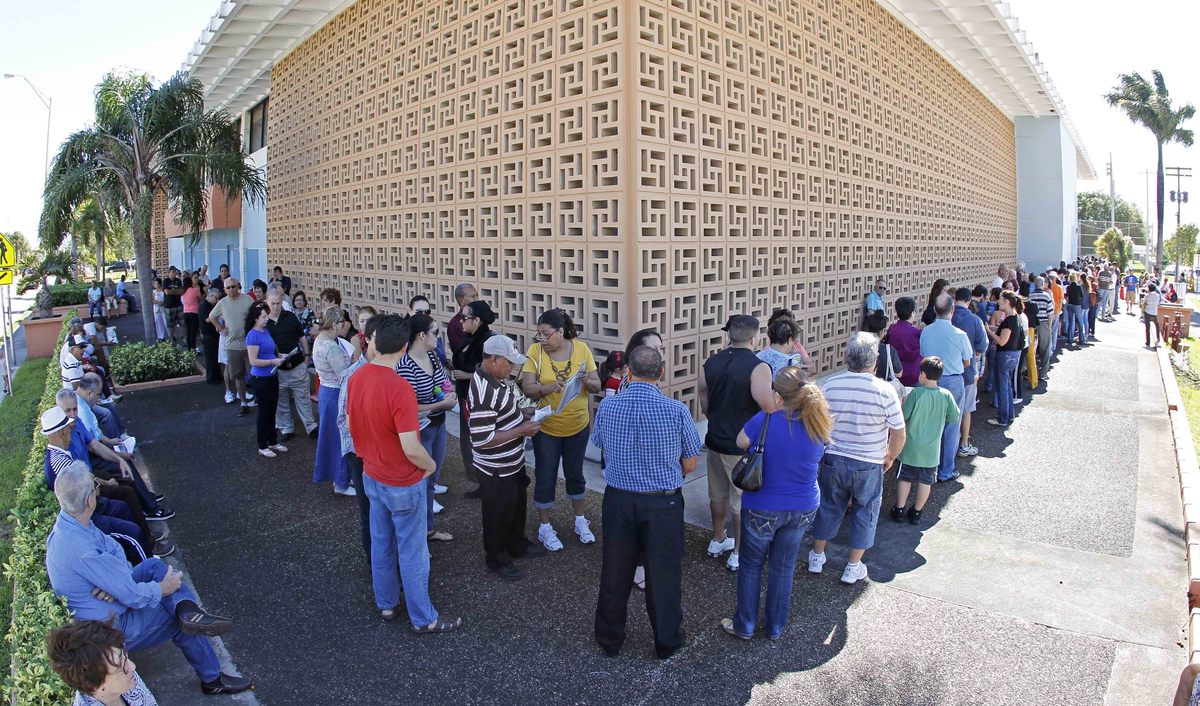Matthew Yglesias & Megan McCardle explain why Walmart workers should have a union
Recessions are also a time when employers don't necessarily have a lot of profits to give up. Walmart's $446 billion of revenue last year was eye-popping, but its profit margins are far from fat--between 3% to 3.5%. If they cut that down by a percentage point--about what retailers like Costco and Macy's have been bringing in--that would give each Walmart employee about $2850 a year, which is substantial but far from life-changing. Further wage improvements would have to come out of the pockets of Walmart's extremely price conscious shoppers.As Yglesias usefully explains, once we cut through the misleading way that McCardle has rhetorically framed the issues,
the analysis is admirably clear. Wal-Mart's profit margins, though by no means enormous, are larger than those of its main competitors. Given the weak national labor market, Wal-Mart has no reason to cough up extra money to its workforce. But a strong labor union could coerce them into coughing up higher pay and bringing their margins in line with Costco and Macy's. As a result, each Wal-Mart employee might get a bit less than $3,000 more a year. Whether that's "life-changing" or not is an interesting question, but since we're talking about low-wage workers here, I think the intuitions of highly paid professionals may be a bit off. It seems very plausible that the marginal hedonic value of a thousand bucks or three to Wal-Mart's workforce would be very large.Yes, it does seem plausible. According to various estimates I've seen (here, for example), the average Walmart sales employee makes somewhere between $15,000 and $20,000 per year, roughly speaking. An extra $2,850 per year would mean a raise of around 15%, which might strike some people as significant—even, to use McCardle's term, "substantial".
But read Yglesias's whole post (which includes a nicely chosen song-and-dance clip).
—Jeff Weintraub
P.S. Earlier this month Ron Unz, the publisher of The American Conservative, wrote an interesting article for that magazine in which he recommended, perhaps surprisingly, a substantial increase in the national minimum wage. (Unz himself is an interesting and unusual character. He made his bundle decades ago as a Silicon Valley entrepreneur, and since then has applied his money and energy to various types of public-policy entrepreneurship, usually with a "libertarian" slant.) At one point in the article—which, by the way, is worth reading—Unz made a claim about Walmart that surprised me, but which may have some factual basis:
Ironically, it is likely that major elements of the private sector would be perfectly happy with this arrangement. For example, despite their low-wage and anti-worker reputation, Wal-Mart’s top executives lobbied Congress in 2005 for an increase in the minimum wage, concerned that their working-class customer base was growing too impoverished to shop at their stores.[xi] Wal-Mart might never be willing to raise its wages in isolation, but if a higher minimum wage forces all competitors to do the same, then prices can also be raised to help make up the difference, while the large rise in disposable consumer income would greatly increase sales.Assuming that Walmart might actually be willing to pay their workers a little more, why don't they simply do it, and why have they always fought any efforts to unionize their work force tooth and nail?
Part of the answer, which Unz mentions, is that they would be willing to pay higher wages only if their competitors were forced to do the same (which, by the way, is a good argument for unionizing the whole retail sector, as well as raising the minimum wage). But the more crucial point, I suspect, is a different one. Raising the minimum wage would only increase wages for Walmart employees. If they were able to unionize, however, that would also empower them, or at least change the balance of power between workers and management, and make it more difficult for Walmart to treat its employees as passive and powerless cogs in the company machinery. For the people who run Walmart, maintaining their despotic power within the organization (which they would presumably describe in terms of maximizing the company's ability use its "human resources" in the most "flexible" and "efficient" ways) is undoubtedly a more fundamental and non-negotiable concern than wage levels per se.
==============================
Matthew Yglesias (MoneyBox)
Monday, November 26, 2012
Wal-Mart Could Easily Pay (Somewhat) More To Its Associates
I find a lot of anti-Wal-Mart writing unpersuasive, but far and away the strongest case that Wal-Mart's workers could improve their lives at no cost to the public weal if they had a strong labor union comes from pro-Wal-Mart voices.
Here's Megan McArdle for example:
Recessions are also a time when employers don't necessarily have a lot of profits to give up. Walmart's $446 billion of revenue last year was eye-popping, but its profit margins are far from fat--between 3% to 3.5%. If they cut that down by a percentage point--about what retailers like Costco and Macy's have been bringing in--that would give each Walmart employee about $2850 a year, which is substantial but far from life-changing. Further wage improvements would have to come out of the pockets of Walmart's extremely price conscious shoppers. Which might be difficult, given how many product categories Amazon is pushing into.This is a great case study in rhetorical strategies. But the analysis is admirably clear. Wal-Mart's profit margins, though by no means enormous, are larger than those of its main competitors. Given the weak national labor market, Wal-Mart has no reason to cough up extra money to its workforce. But a strong labor union could coerce them into coughing up higher pay and bringing their margins in line with Costco and Macy's. As a result, each Wal-Mart employee might get a bit less than $3,000 more a year. Whether that's "life-changing" or not is an interesting question, but since we're talking about low-wage workers here, I think the intuitions of highly paid professionals may be a bit off. It seems very plausible that the marginal hedonic value of a thousand bucks or three to Wal-Mart's workforce would be very large.
I'm reminded of "Seven and a Half Cents" from what's far and away the best musical comedy about union organizing:
Jason Furman has argued persuasively in my view that Wal-Mart's low prices are an underappreciated boon to the American working class, but McArdle's point about profit margins underscores the fact that a stronger worker presence would likely create wage gains without undermining Wal-Mart's low prices.
Now the Amazon point is a crucial one for the medium term. Competitors should be pissing their pants about Amazon and its sell-at-a-loss-and-make-it-up-in-volume business strategy. No amount of squeezing your workers is going to let you maintain your margins in the face of competition from an entrant who has no margins. This behemoth will devour Wal-Mart—associates and executives alike—unless Wall Street stops offering it such a generous price/earnings ratio.







